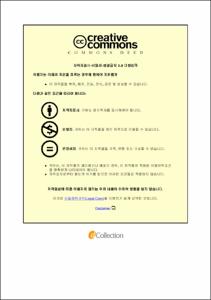프랜차이즈 가맹본부와 가맹점 사이에서 힘의 원천이 갈등을 매개로 성과에 미치는 영향
- Alternative Title
- The Effects of the Source of Power between Franchisors and Franchisees on the Franchisesses's Performance via their Conflict : Focusing on the CVS
- Abstract
- As the interest in distribution and logistics has steadily increased during the past
two decades, industries specialized in distribution and logistics have also considerably expanded. Especially, Convenience stores show the highest growth and are becoming the core distribution platforms.
The main feature of convenience stores is the franchise system. In recent years, Convenience stores found on this system have been criticized for focusing on quantitative expansions to have competitive advantages.
Consequently, conflicts arise in contracts and in operations and the qualitative growth is not always achieved as a result of the extreme means the franchisers use trying to control the vertical unilateral relationship with franchisee. In this regard, We selected four independent variables, 'Coercive force', 'Expert force', 'Reference force', ‘Reward Power’ and we used 'conflict' as a mediator to examine how the use of 'Force' affects 'Performance'.
The results of the study reveal that 'Coercive force', 'Expert force' and 'Reference force' are correlated to 'Performance' and 'Conflict' is also correlated to 'Performance' . Furthermore, 'Coercive force' and 'Reference force' turns out to be positively related to 'Performance'. Finally, the evidence shows a partial mediated effect for 'Coercive force' and 'referent force'. But a complete mediated effect 'Expert force'.
Although, previous studies have focus on franchisee, ‘Purchase behavior’, ‘Satisfaction’ and ‘Franchisor’, this study focused on Convenience stores and Franchisee rather than Franchisor. So this study provides theoretical implications of findings and will contributes related CVS.
- Issued Date
- 2018
- Awarded Date
- 2018.2
- Type
- Dissertation
- Publisher
- 부경대학교
- Alternative Author(s)
- Song Hyun OH
- Affiliation
- 부경대학교 대학원
- Department
- 대학원 경영학과
- Advisor
- 김완민
- Table Of Contents
- 차례 ⅰ
Abstract ⅵ
제1장 서론 1
제2장 이론적 배경 및 선행연구 3
제1절 프랜차이즈의 시스템 3
1.1) 프랜차이즈의 정의 3
1.2) 프랜차이즈의 유형 4
제2절 힘의 정의 6
2.1) 힘 6
2.2) Dahl의 정의 7
2.3) Emerson의 정의 7
제3절 힘의 원천 8
3.1) 힘의 원천 정의 8
3.2) 힘의 원천 유형 11
3,3) 힘의 원쳔 효과 12
제4절 유통경로 상에서 갈등에 대한 정의 13
4.1) 갈등의 정의 및 원인 13
4.2) 유통경로에서의 갈등의 정의 및 원인 14
제5절 유통경로에서의 성과에 대한 정의 16
5.1) 경영성과의 개념 및 정의 16
5.2) 경영성과의 재무적/비재무적 관계 17
5.3) 경로에서의 성과 18
제6절 편의점의 개념 및 특징 19
6.1) 편의점 개념 19
6.2) 편의점 특성 20
6.3.) 편의점 현황 22
제7절 편의점 유통경로 구성원에 관한 이론적 고찰 23
7.1) 편의점 본부와 가맹점 23
7.2) 파워와 경로갈등과의 관계 24
7.3) 갈등과 성과의 관계 24
① 부정적 측면 24
② 긍정적 측면 26
제3장 연구방법 28
제1절 연구 모형과 연구가설 28
1.1) 연구모형 28
제2절 가설설정 29
제3절 표본 선정 및 자료수집방법 32
제4장 실증분석결과 33
제1절 변수 분석결과 33
1. 인구 통계학적 분석 33
2. 신뢰도 및 타당성 분석 35
2.1) 힘의 원천 37
2.2) 갈등과 성과 38
제2절 가설 검증결과 39
제5장 결론 45
제1절 연구 요약 45
제2절 연구의 시사점 46
제3절 연구의 한계점 및 향후 연구의 방향 47
참고문헌 48
설문지 55
- Degree
- Master
- Files in This Item:
-
-
Download
 프랜차이즈 가맹본부와 가맹점 사이에서 힘의 원천이 갈등을 매개로 성과에 미치는 영향.pdf
기타 데이터 / 734.36 kB / Adobe PDF
프랜차이즈 가맹본부와 가맹점 사이에서 힘의 원천이 갈등을 매개로 성과에 미치는 영향.pdf
기타 데이터 / 734.36 kB / Adobe PDF
-
Items in Repository are protected by copyright, with all rights reserved, unless otherwise indicated.